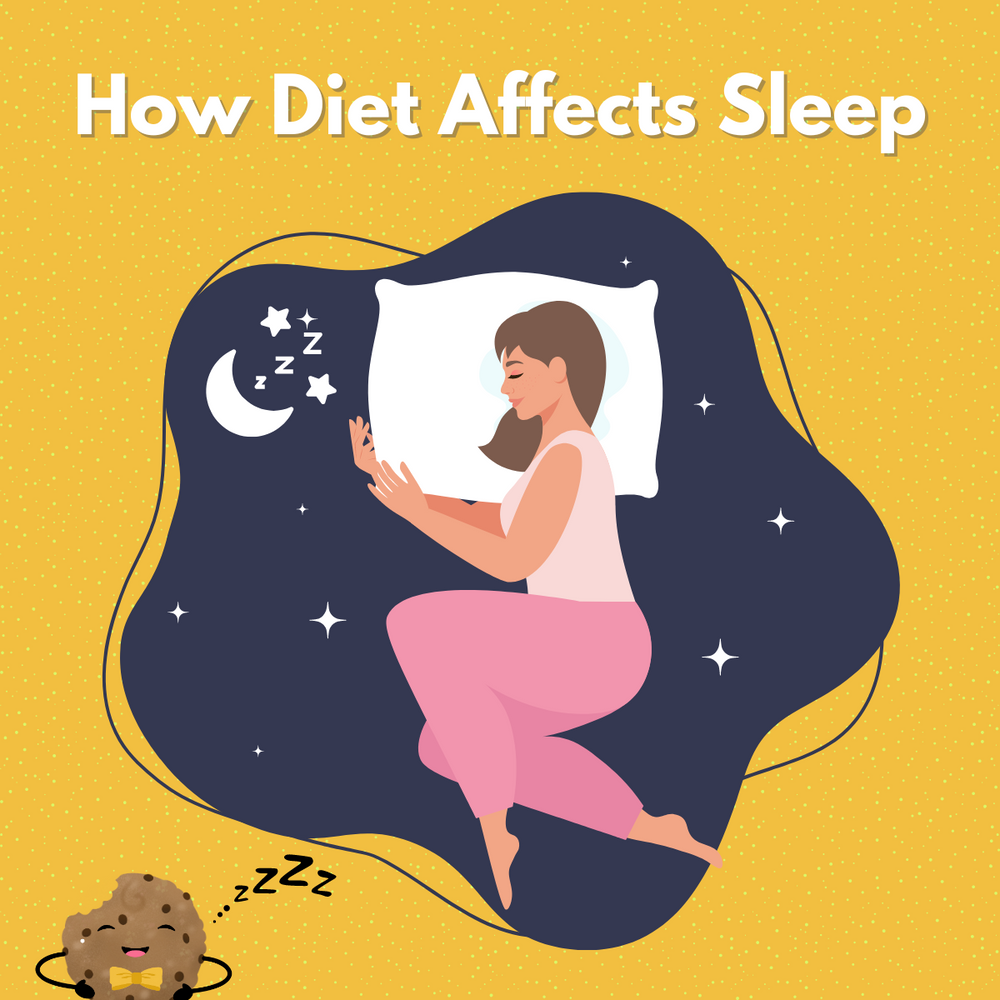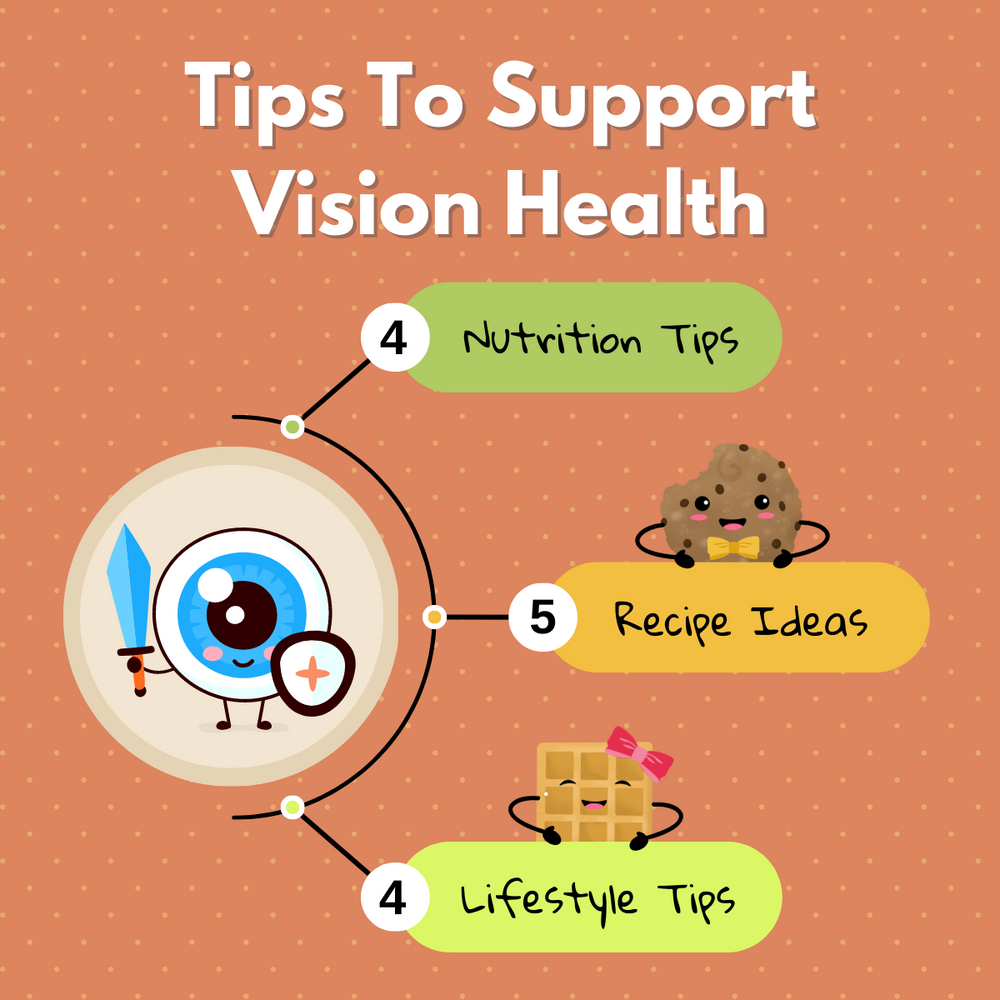Diet and sleep: What’s the relationship between nutrition and sleep quality?

Diet and sleep: What’s the relationship between nutrition and sleep quality?
Does what you eat (or not eat) affect your sleep quality? As a dietitian, I’m here to shed light on some ways in which diet may be impacting your shut eye, and suggest some possible solutions to improve the relationship between nutrition and sleep wellness.
The days are getting longer and warmer, which means our family routines may change to include more evening activities and social events outdoors. Spending more time outdoors is a wonderful thing to savor during these warmer months! However, with routine changes comes navigating new timing around mealtimes.
As a mom of three, my family also experiences the same struggles when it comes to having meals prepared (and eaten) in time for a soccer game, or making sure to have enough snacks on hand for active and hungry kids when we are out of the house. If you’re a parent, you’ll likely agree that we often prioritize our kids getting fed first, which means we may forget to eat or ignore our own hunger until later, all of which can affect sleep quality.
Of course, there are other factors that may be impacting your sleep hygiene, such as blue light exposure before bed, inconsistent wake and sleep schedule, or sleeping in a room that is too warm. However, this post will focus on food and nutrition as it relates to sleep.
Here are some factors that affect the relationship between nutrition and sleep for us busy parents and caregivers.
Going to bed hungry
Have you ever had to get out of bed in the middle of the night for a snack because you can’t sleep? I know I have! Maybe it was that you unintentionally skipped dinner because of a busy evening schedule, or maybe it was the fact that your activity level was a lot higher that day and you didn’t compensate for it food-wise. Or maybe you’ve heard that eating past a certain hour isn’t “healthy” or good for you (thanks, Diet Culture). Regardless of how you ended up going to bed on an empty stomach, it can make falling asleep (or staying asleep) an impossible task.
Possible solution: Connecting with your body’s internal cues
If this is you time and time again, it might be a good time to ask yourself “how can I better nourish my body during the day and in the evening, so that I can have a better sleep”. Perhaps this is an exercise of tuning into your body cues more often during the day, and honoring your hunger when you feel it (regardless of what time it is). Maybe it’s making sure that you’re including lots of variety in your meals and snacks, and that you’re eating until you’re physically (as well as emotionally) satisfied.
The process of interpreting your internal cues, and feeding your body based on these cues can take some time and practice. All too often we predetermine the “right” amount of food that our body gets to eat and the “right” times, based on external food rules and diet culture. The truth is, when you are attuned to your internal signals of hunger and fullness, the amount you eat, what you eat, and when your body needs to eat can shift and change day to day, based on several factors! If you do wake up hungry in the middle of the night, try eating a protein and fibre containing snack help satisfy your hunger (such as a slice of whole grain toast and peanut butter, or some muesli cereal with nuts, and milk).
Eating a large meal right before bed can affect sleep quality
On the other hand, eating a large meal right before bed might not agree well with your digestive system, which also may interrupt your quality of sleep. Everyone’s digestive system moves at a different rate, depending on a variety of factors such as metabolic rate, activity level, age, sex, presence or absence of disease etc. For example, an active growing child might be able to eat a full meal right before bed and not blink an eye (or rather, keep their eyes shut all night and sleep well). On the other hand, a middle-aged adult is more likely to experience heart burn (especially if the meal was spicy or high in fat), indigestion and discomfort, leading to a broken and uncomfortable sleep.
Possible solution: Trial adding in an extra snack to your day
This could be adding in a small protein and fibre-containing snack 1-2 hours before bed to give your body time to digest before lying down for the night. Another option is to plan ahead and have easy grab and go snacks on hand in your car or purse for those especially busy times when you are at risk of going too long without eating. Some easy snacks to have on hand include: Mixed nuts and seeds, a bag of apples, dried fruit, bars containing protein/nuts/seeds, or homemade energy balls/muffins. These delicious dark chocolate barley banana muffin recipe is a great make ahead option that freezes well, which you can pop out of the freezer and into your bag for an hunger crushing snack on the go!
Alcohol and caffeine consumption
Alcohol consumption is linked to poorer sleep quality and duration. This is especially true if alcohol is consumed close to bedtime as it interrupts REM sleep leading to excessive sleepiness the next day. Often caffeine is then used to counteract the sedative effects of alcohol, leading to an unfortunate cycle of increasing caffeine to stay awake, but then requiring more alcohol to fall asleep. If you are caffeine sensitive you are well aware of how it can limit your ability to fall asleep, or get enough quality sleep. However, many people may not realize that too much caffeine can also interrupt deep, slow wave sleep, which is needed to feel refreshed the next day.
Possible solution: Switch to decaf and non-alcoholic beverages
If you suspect that caffeine and/or alcohol may be affecting your sleep quality, it may be time to make some tweaks. For example, if you love the taste of coffee, you may switch over to decaf later in the day instead. You may also consider unpacking your relationship with alcohol. This may be a tougher one to tackle as there is quite a bit of nuance, so please consider connecting with a health professional for help.
Nutrient deficiencies and sleep quality
Some minerals play essential roles in the sleep-wake cycles of the body. Let’s dive into each of them.
Magnesium- Magnesium is key in cellular time-keeping and energy balance as well as sleep regulation. This nutrient is an important cofactor in the synthesis of melatonin, a key hormone produced by the brain in response to darkness that is key in your sleep cycle and circadian rhythm regulation. Food sources of magnesium include whole grains (try these delicious upcycled barley products from Susgrainable), leafy green vegetables, dairy, legumes, nuts and seeds.
Vitamin D- The sunshine vitamin! In Canada we don’t get nearly enough of this vitamin which is why I recommend all adults and children take a daily supplement (even during summer months). Vitamin D receptors have been found in parts of the brain that regulate sleep. Vitamin D deficiency has been associated with shorter sleep duration and significantly higher risk of sleep disorders. Food sources of vitamin D include fortified milk, salmon, trout, and liver.
Calcium- this mineral has been found to be a neuromodulator in the wake and sleep cycle and plays a role in melatonin production as well. Calcium deficiency is associated with shorter sleep duration and less restorative sleep. Food sources of calcium include milk, yogurt, cheese, fortified plant-based milk or juice, salmon canned with bones, broccoli and leafy greens.
Bottom Line
Nutrition can affect sleep quality in several ways. In general, it is recommended to avoid consuming large meals, caffeine, and alcohol before bedtime as they can negatively affect sleep quality. Instead, you may want to connect with your body’s internal cues, make some tweaks to caffeine and alcohol consumption and aim to eat your last meal at least two to three hours before bedtime. It’s important that you work with a trusted health professional, such as a registered dietitian, to help you navigate these challenges in a safe and sustainable way.
References:



